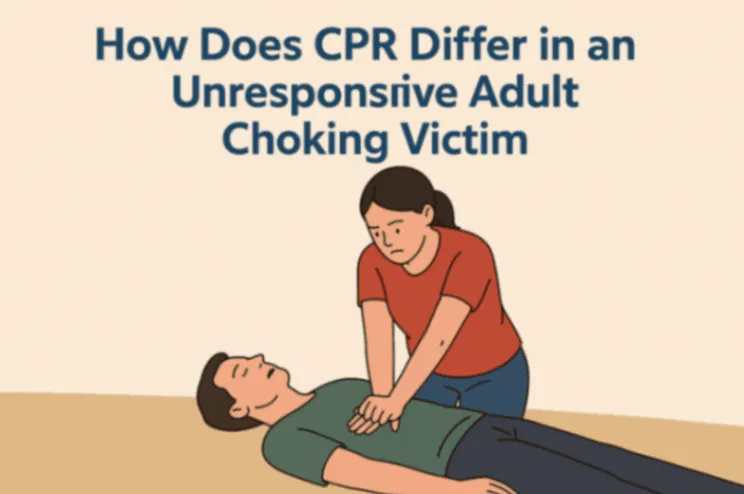|
Doctors confirm marijuana smoke carries toxins also found in tobacco. Evidence on lung cancer risk remains mixed, yet heavy, long-term use shows concern. Moderation and alternatives reduce possible harm. |
You’ve probably heard it before: marijuana is safe, it’s natural, and far less harmful than tobacco. But as legalization spreads and cannabis use becomes more common, one concern keeps surfacing: Does smoking weed cause lung cancer? The answer isn’t a simple yes or no. While many users see it as safer than cigarettes, doctors and researchers caution that inhaling marijuana smoke may carry its own risks. In this article, we’ll separate myths from science, explore what current studies reveal, and see whether lighting up could really put your lungs in danger.
Does Smoking Weed Cause Lung Cancer?
Look, the direct line between cannabis smoke and lung cancer isn’t painted in bold strokes. Some research shows; others show no measurable increase. What makes it tricky is that many people who smoke weed also use cigarettes, which confuses results. What doctors do agree on is this: marijuana smoke contains carcinogens, and regular inhalation of those chemicals is not risk-free.
When asked if weed's lung cancer risk is lower than tobacco, doctors usually say the science is still developing. Some long-term findings confirm that marijuana smoke contains the same harmful toxins that drive tobacco-related cancers. Others show that cannabis smokers are often diagnosed at an earlier age compared to tobacco-only smokers, even though survival outcomes were not worse. The pattern leaves a clear message: more data is needed, but dismissing the smoking of marijuana cancer risk outright is careless.
What Happens When You Smoke Marijuana?
Inhaling cannabis is not simply drawing in a harmless vapor. Combustion creates a toxic cocktail.
What marijuana smoke carries:
-
Tar and sticky resins that cling to lung tissue
-
Ammonia and benzene irritate the airways
-
Polycyclic aromatic hydrocarbons are tied to cancer formation
-
Carbon monoxide reduces oxygen levels in the blood
People often hold marijuana smoke in their lungs longer than tobacco smoke, pulling it deeper into the tissue. That habit increases the time marijuana smoking carcinogens sit against delicate alveoli. Add the presence of marijuana smoke tar and toxins, and the cannabis respiratory health picture becomes complicated.
The long-term effects of smoking weed can also go beyond cancer. Chronic cough, wheezing, and recurring chest infections are common. So while surveys indicate a majority belief among millennials that cannabis smoke is somehow “cleaner” than tobacco, chemical reality says otherwise.
Evidence From Medical Studies and Doctors
The strongest clue comes from multiple peer-reviewed studies. A large cohort tracked over four decades confirmed that marijuana smoke contains many of the same carcinogens as tobacco smoke. Evidence for marijuana lung cancer risk remains mixed because concurrent tobacco use complicates most findings.
A different study published in 2025 found that cannabis smokers were often diagnosed with lung cancer at a younger age compared to tobacco-only smokers. However, cannabis smoking was not considered a prognostic factor for mortality, meaning it did not significantly change survival outcomes once cancer appeared.
Doctors working in pulmonology continue to say that whether marijuana smoke causes cancer is still debated, but repeated references to cannabis smoking health risks in medical journals push the conversation beyond speculation. For the patient sitting across from them, physicians stress that smoke is smoke, burning plant material, inhaled daily, is never harmless.
Marijuana vs. Tobacco: Which Is Riskier for the Lungs?
The comparison between marijuana vs tobacco lung cancer risk matters because many people smoke both. On one side, tobacco is used more frequently, with dozens of cigarettes each day. On the other hand, marijuana often involves fewer joints per day but deeper inhalation.
Here’s a table showing how experts describe the comparison:
|
Factor |
Marijuana Smoke |
Tobacco Smoke |
|
Carcinogens present |
Yes (tar, benzene, ammonia) |
Yes (tar, benzene, nitrosamines) |
|
Inhalation style |
Deeper, longer breath-holding |
Shorter, more frequent |
|
Frequency of use |
Occasional to daily joints |
Pack-a-day for decades has been common |
|
Cancer evidence |
Mixed, some risk signals |
Strong, proven risk |
|
Other effects |
Bronchitis, immune impact |
Heart disease, COPD, cancer |
So is marijuana smoke as harmful as tobacco smoke? Doctors argue that the profiles differ, but neither is safe. The smoking marijuana cancer risk may be lower in absolute terms because of frequency, yet the presence of marijuana smoking carcinogens makes any regular use risky.
Other Respiratory Health Risks Linked to Weed Smoking
Before lung cancer even enters the discussion, cannabis use already changes breathing. Supporting evidence shows that long-term smokers develop a constant cough, chest tightness, and repeated infections. The cannabis use and respiratory system relationship stretches beyond oncology.
1. Chronic Bronchitis
Cannabis and chronic bronchitis often travel together. Continuous irritation inflames the bronchi, leading to thick mucus and breathlessness. Patients report that long-term effects of smoking weed include needing inhalers for relief.
2. Bronchospasm Episodes
Sudden narrowing of airways, called acute bronchospasm, can happen immediately after inhaling. Symptoms include wheezing and shortness of breath. For asthmatic users, this can be dangerous.
3. Immune Response Weakening
Doctors point out that marijuana smoke weakens the immune defense in the lungs. This makes users more vulnerable to respiratory infections. A winter flu combined with cannabis smoking health risks can spiral quickly.
4. Marijuana Secondhand Smoke Risk
Does secondhand weed smoke cause lung cancer? Parents worry about children being exposed at home. While research is thinner here than for tobacco, inhaling marijuana smoke, tar, and toxins passively carries obvious risk.
5. Vaping and Respiratory Injuries
Many switched to vaping, thinking it’s cleaner. Reality is not so clear. Does vaping marijuana cause lung cancer? Evidence remains limited, but vaping weed and lung cancer concerns remain alive after the 2019 EVALI outbreak. High-potency concentrates in vapes carry their own set of risks.
Myths vs. Facts About Weed and Lung Cancer
Public talk often drifts into myths, so let’s separate fiction from fact.
Belief vs. Reality
-
Myth: Weed is natural, so it’s safe.
-
Fact: Cannabis smoking health risks come from combustion toxins.
-
Myth: Vaping eliminates danger.
-
Fact: Research on vaping weed and lung cancer shows continued concern.
-
Myth: Only cigarettes kill.
-
Fact: Cannabis smoking health risks extend beyond cancer, including chronic bronchitis and immune suppression.
-
Myth: Edibles are always safe.
-
Fact: Edibles bypass the lungs but create other issues, including dosing errors.
The question “what studies say about weed and lung cancer risk” is not answered by slogans. Medical journals continue to map where facts differ from myths.
Safer Alternatives and Harm Reduction Tips
Cannabis use will not vanish, so the conversation must include harm reduction. The answer to how to reduce lung damage from smoking weed lies in strategies backed by clinicians.
1. Shift to Non-Smoke Options
Marijuana edibles vs smoking is a straightforward comparison. Gummies, oils, or tinctures remove smoke exposure. While not risk-free, they protect the lungs from marijuana smoking carcinogens.
2. Moderate Intake
Can smoking weed every day cause lung cancer? Heavy daily use increases exposure dramatically. Doctors recommend moderation. Limiting frequency reduces contact with marijuana smoke, tar, and toxins.
3. Avoid Mixing with Tobacco
Mixing cannabis with tobacco raises risk. It multiplies exposure and confuses diagnosis. Avoiding the mix is one clear harm reduction step.
4. Use Clean Sources
Unregulated products may contain pesticides or additives. Choosing tested and certified cannabis reduces the extra chemical load. This approach is part of harm reduction for cannabis users.
Final Thoughts
So does smoking weed cause lung cancer? Current science says the answer is unsettled, but concern is justified. The risk of lung cancer is not imaginary, even if it is smaller than that of tobacco.
Doctors point out that marijuana smoke is filled with carcinogens, and repeated exposure is unhealthy. Cannabis and lung cancer research continues, but until large long-term studies provide clarity, the safe path is to limit smoking and explore alternatives.
أسئلة متكررة
Can smoking weed just once cause lung cancer?
Smoking weed once is unlikely to give you lung cancer. But even occasional smoking hurts your lungs. Long-term and heavy use increases your risk.
Is weed smoke worse than cigarette smoke?
Weed smoke has similar harmful chemicals to tobacco smoke, often in higher amounts. Weed smokers inhale deeper and hold smoke longer, which can be more harmful.
Can edible weed products cause lung cancer?
No, edible weed doesn’t cause lung cancer. But edibles have their own risks, like stronger mental effects and overdose if taken in high doses.
Does using a bong reduce cancer risk?
Bongs cool smoke, making it easier to inhale. But they don’t remove harmful chemicals that cause cancer. Using a bong isn’t safer than other smoking methods.
Are there safer ways to consume weed?
Yes, safer options exist. Eating edibles or using weed tinctures avoids lung damage. But these methods still affect mental health, so caution is advised.
Can weed smoking damage lungs permanently?
Regular weed smoking can permanently damage your lungs, causing bronchitis, inflammation, and weaker immunity. Damage increases with heavy, long-term use.
Can smoking weed every day cause lung cancer?
Smoking weed daily means more carcinogen exposure. Doctors caution that heavy use increases risk, though studies still debate the exact cancer odds.
Does marijuana smoke cause cancer even if you don’t smoke cigarettes?
Marijuana smoke holds carcinogens. Even without tobacco, inhaling regularly may damage lung tissue, and researchers caution that cancer risk cannot be completely dismissed.
Is marijuana smoke as harmful as tobacco smoke?
Different in frequency but similar in chemical danger. Tobacco has stronger evidence for cancer, but marijuana still carries toxins harmful to lung tissue.
Does vaping marijuana cause lung cancer?
Evidence is still forming. While vaping reduces some toxins, cases like EVALI remind doctors that inhaling concentrates is not harmless for the lungs.
How can users reduce cannabis respiratory health risks?
Alternatives like edibles, using clean products, avoiding tobacco, and moderating intake all reduce harm. Doctors encourage moving away from daily smoking habits.
كُتب بواسطة







